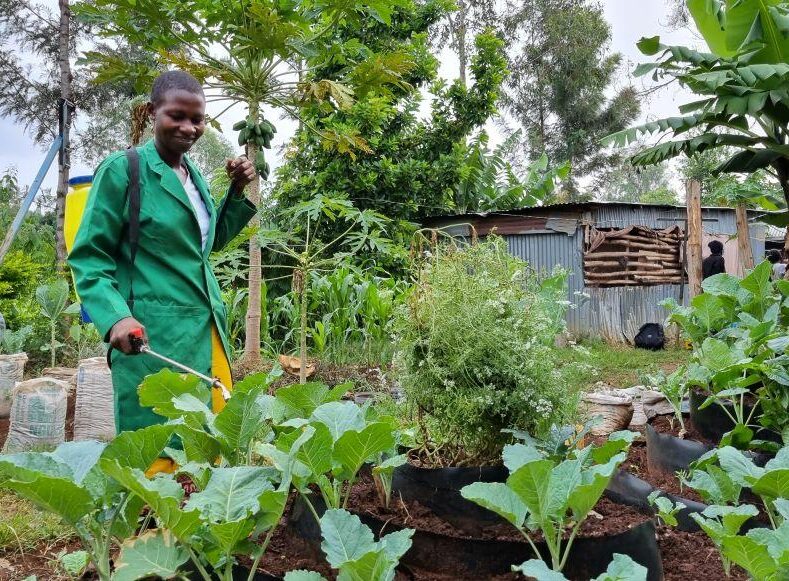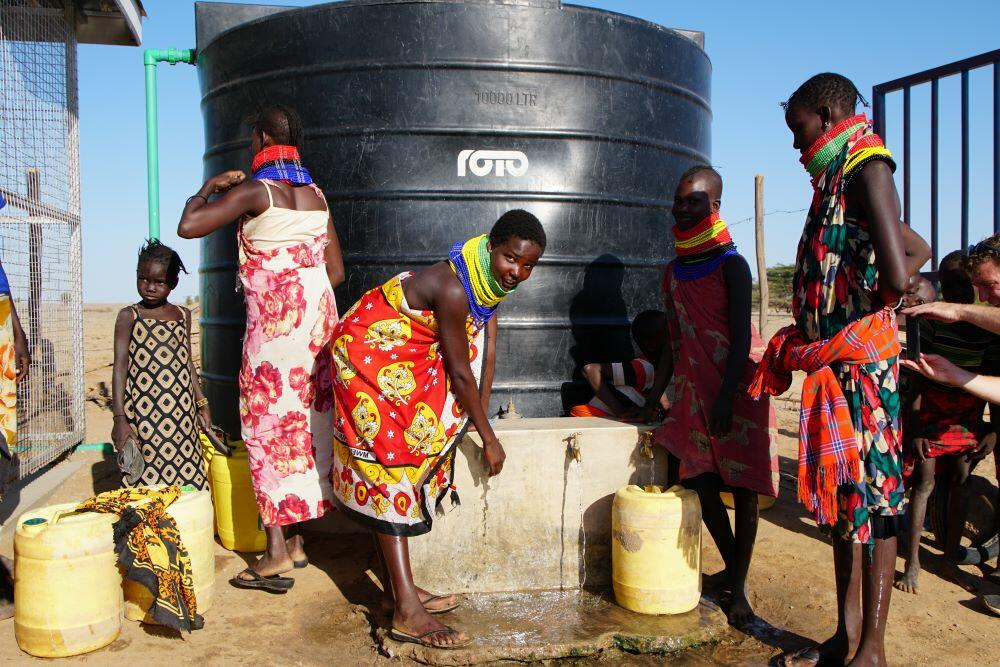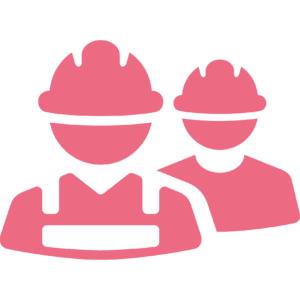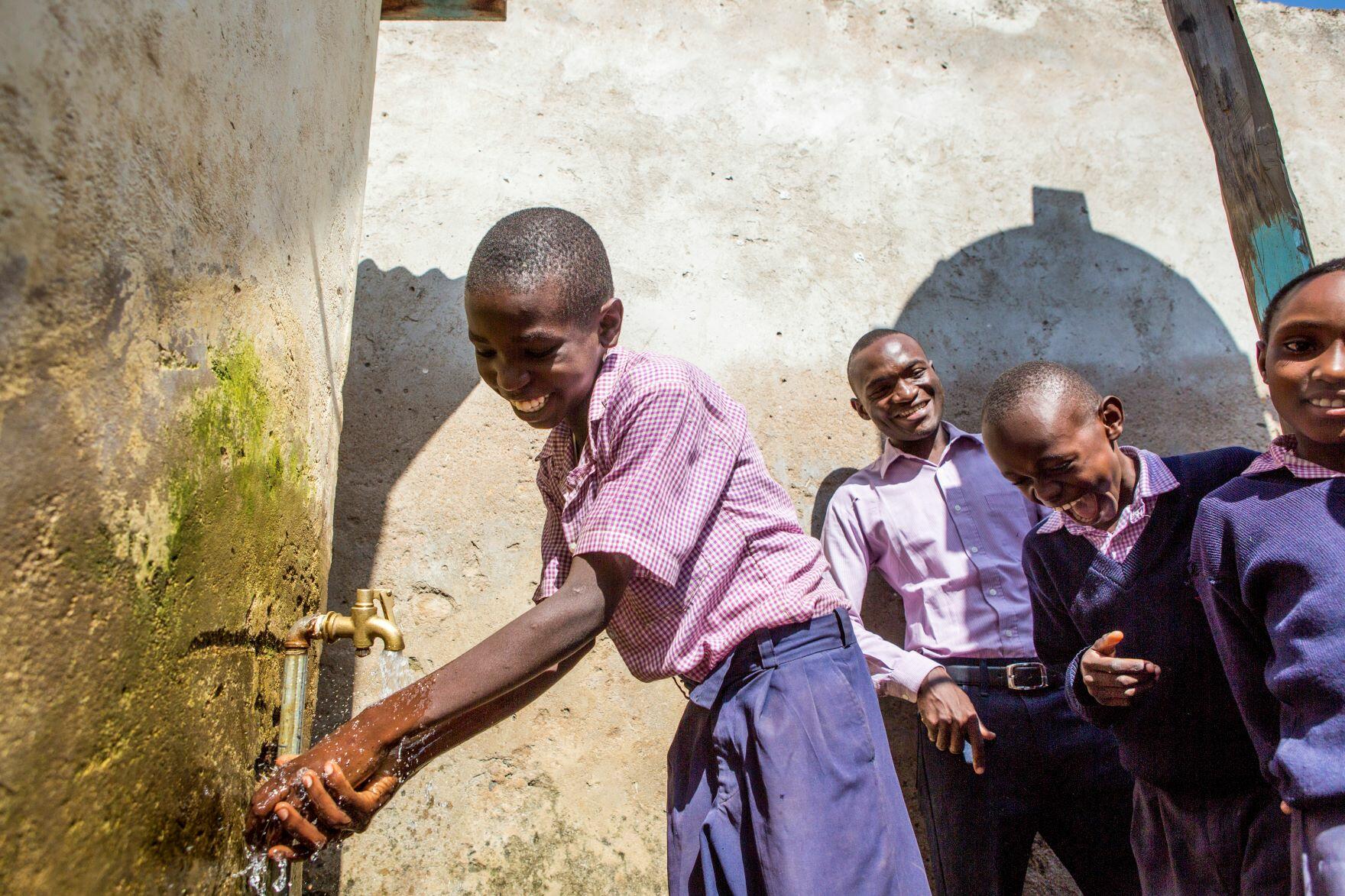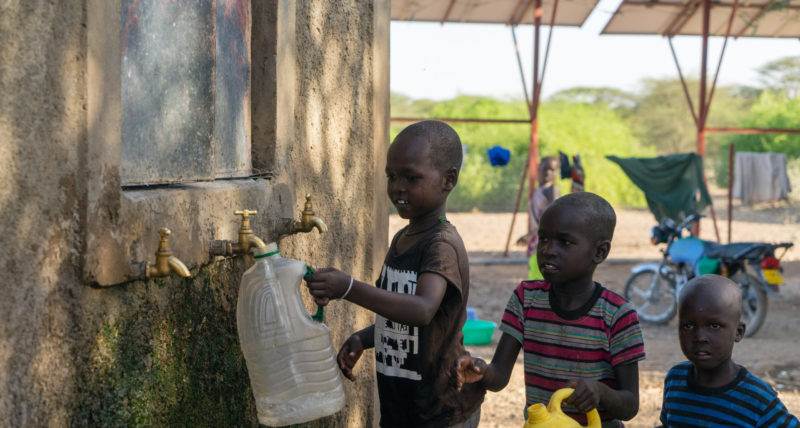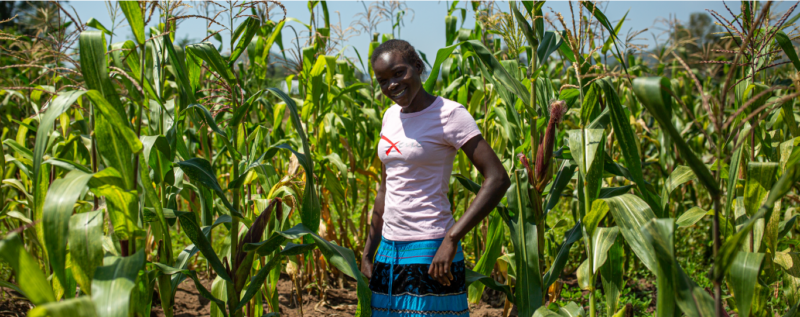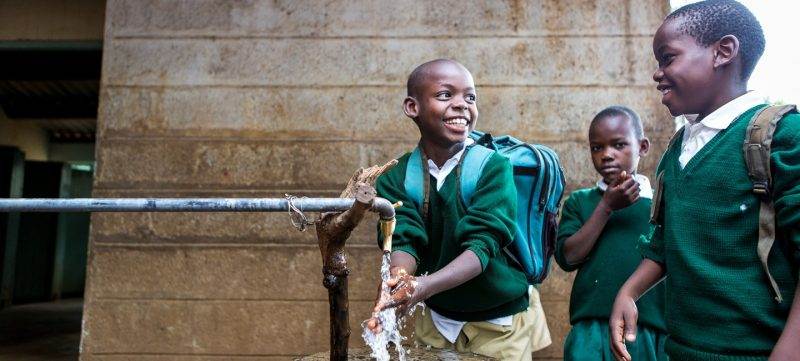Kenya is rich in natural and human resources and has one of the largest economies in sub-Saharan Africa. Still, two out of every five Kenyans live on less than US$2 a day. A similar fraction of young people is out of work. Climate change, environmental degradation, gender inequality and other challenges threaten the country’s economic and social development. However, the challenges are opportunities to build a resilient and inclusive future for its rapidly growing population.
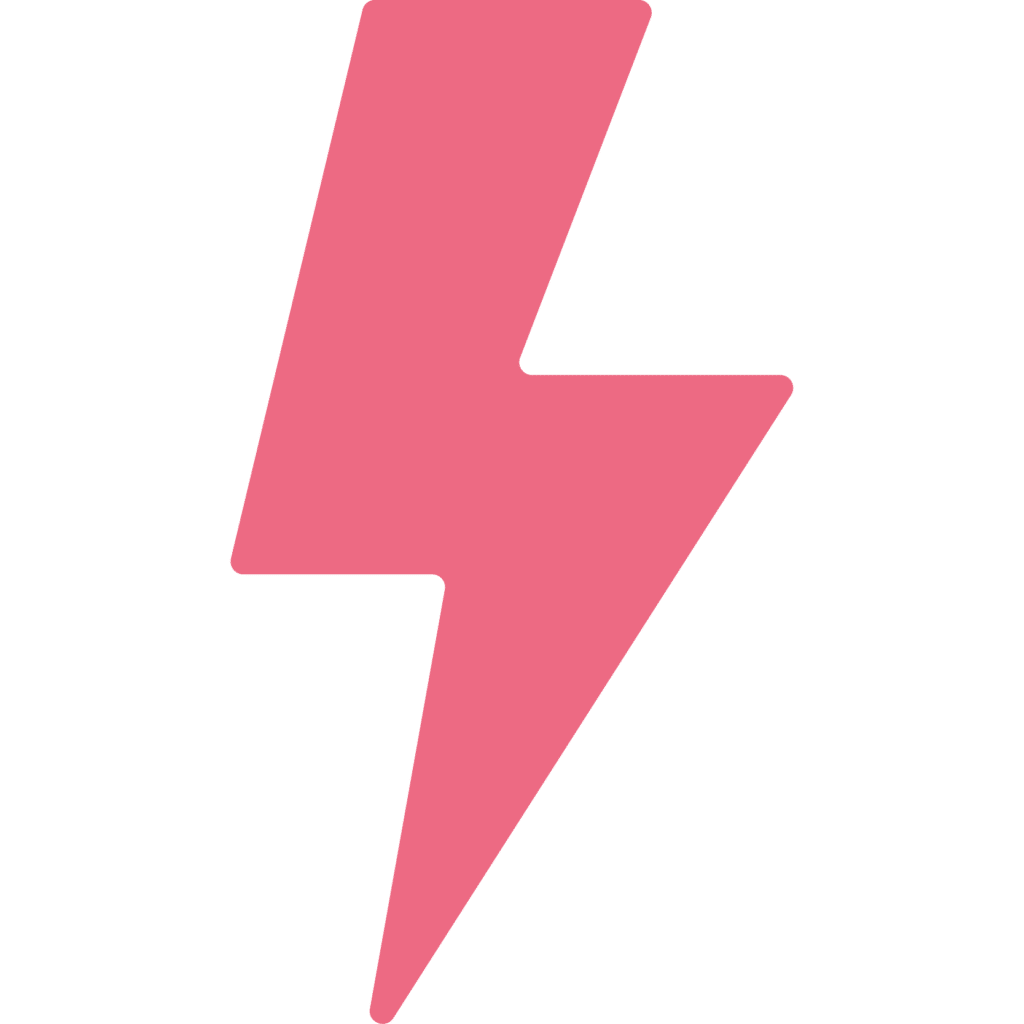
∼99k
people use clean energy, including fuel-efficient cookstoves
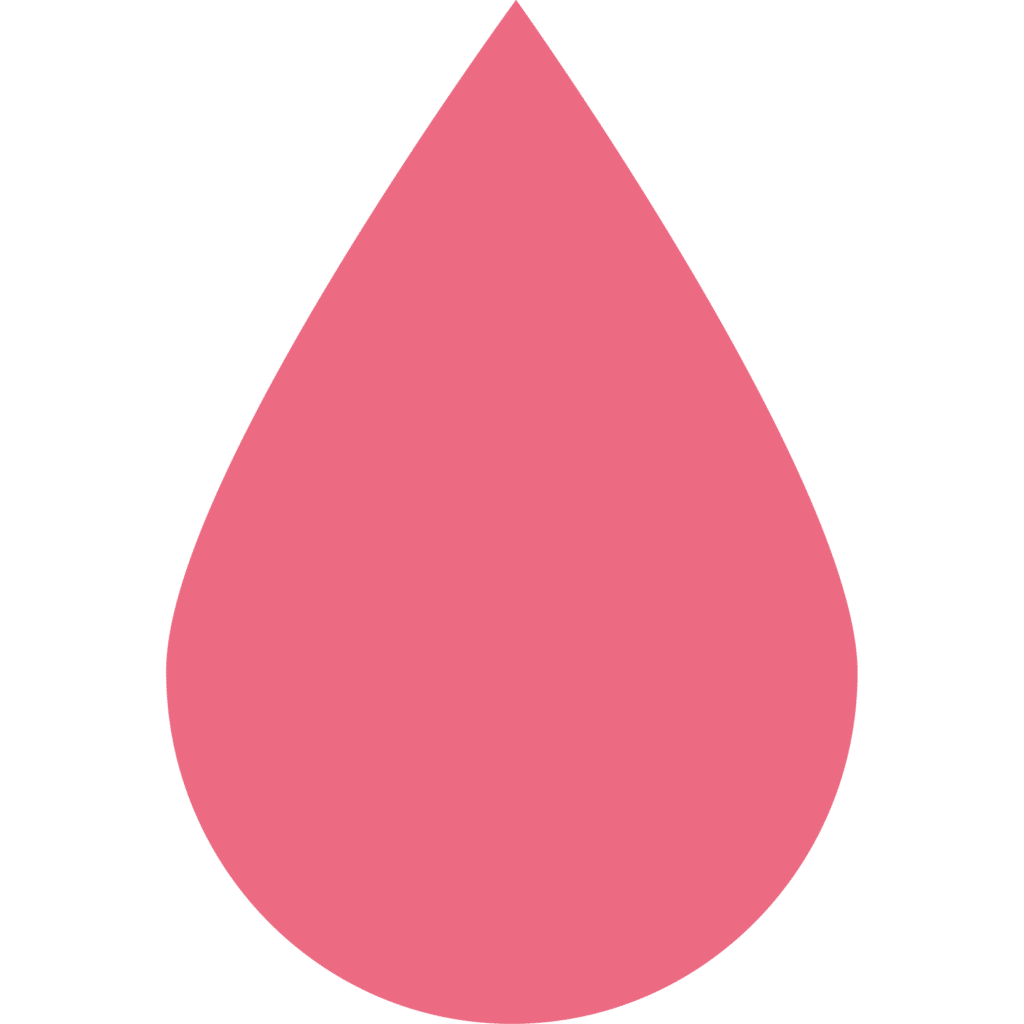
60k
people access clean water for their houses and businesses
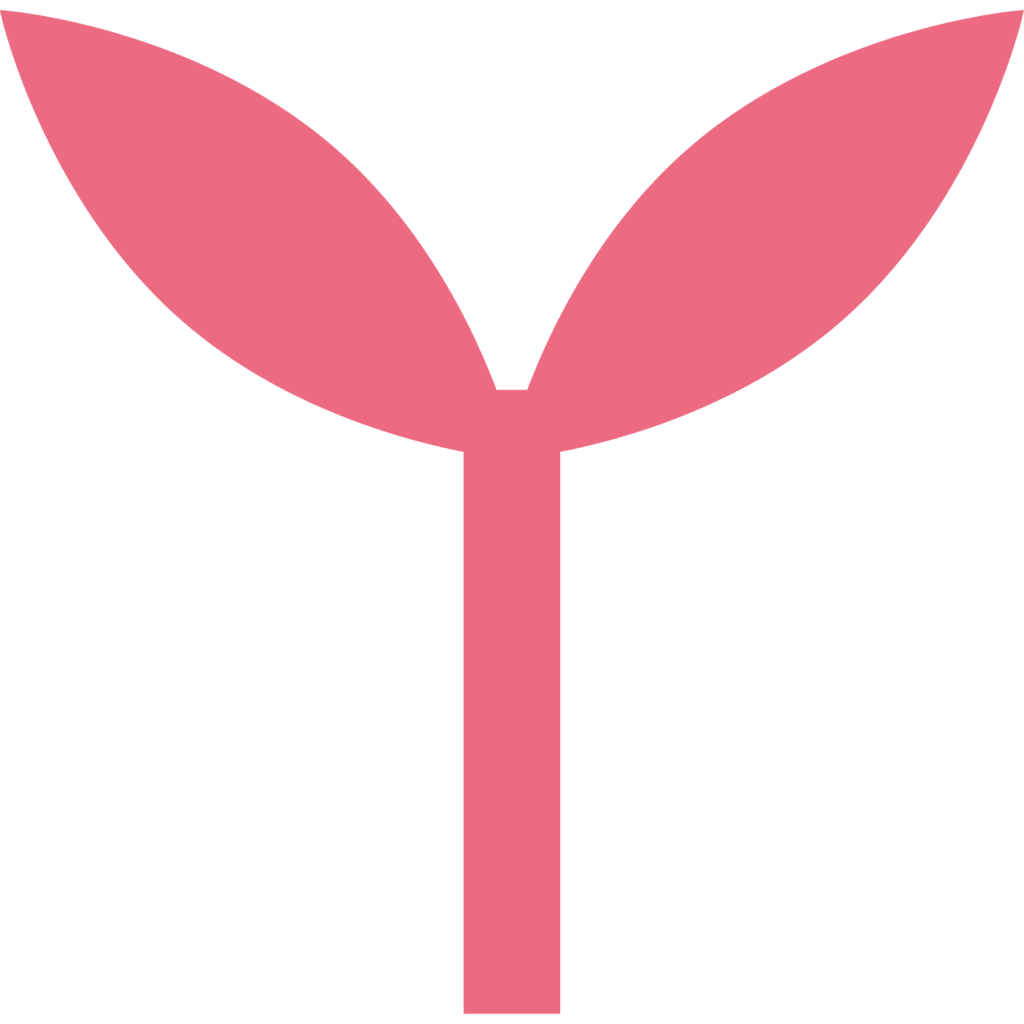
+12k
farmers with improved regenerative agriculture and entrepreneurship skills
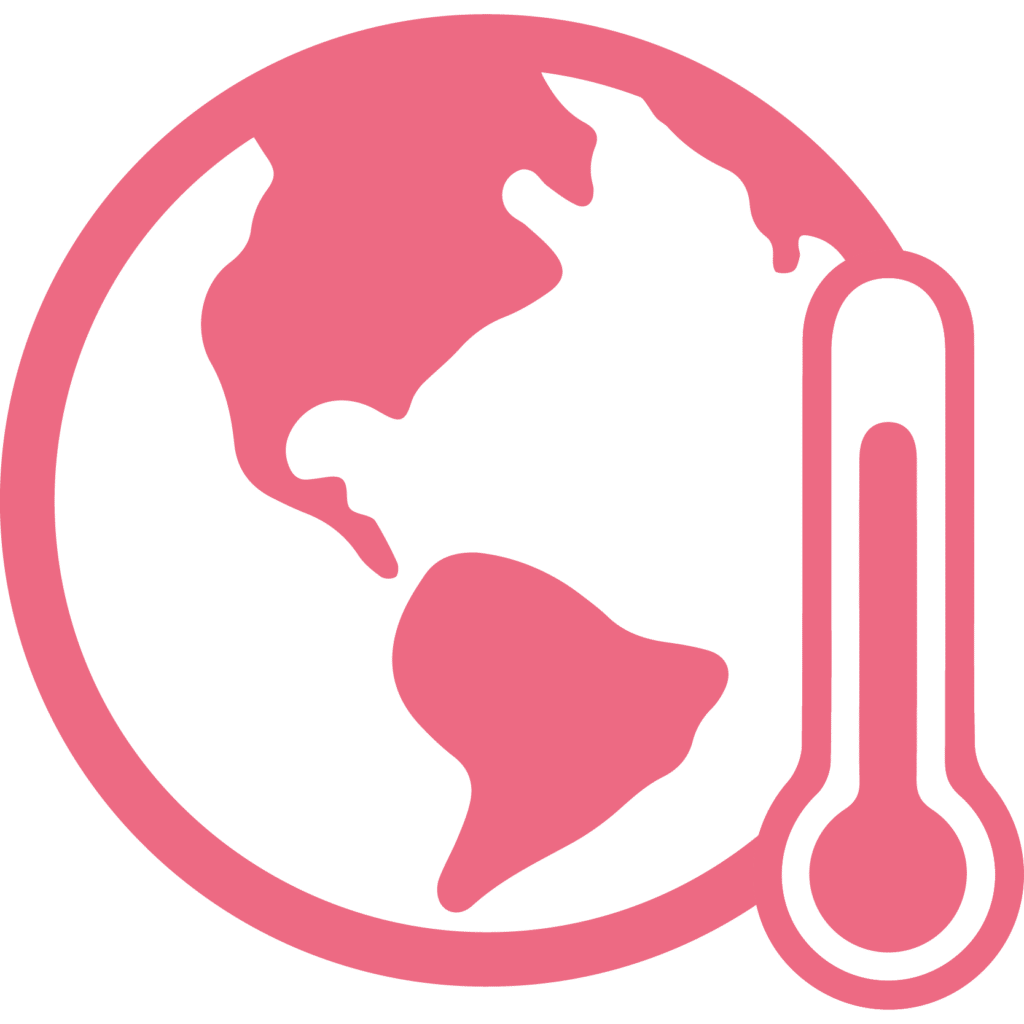
∼2k
people at risk from climate impacts have better access to food and income in Turkana County
A country of extremes
Despite its economic importance in sub-Saharan Africa, Kenya grapples with significant social and economic inequalities. Intensifying droughts, floods, and other climate change impacts threaten gains in poverty reduction, food and water security and gender empowerment.
Agriculture is the backbone of the economy. But productivity and farmer incomes have stagnated or fallen. Intensive farming methods are degrading soils, polluting water sources and reducing biodiversity. Young people are shunning agriculture, while cultural norms are hindering women from agribusiness opportunities. Feeding a growing population and creating dignified jobs for young people present enormous challenges as well as opportunities.
Meanwhile, the widespread use of wood fuel for cooking drives forest loss and illnesses linked to indoor air pollution. Poor water and waste management, especially among low-income communities, impacts food security, education and health.
Practical Action in Kenya contributes to transforming these challenges into opportunities to drive local solutions. We focus on reducing poverty, promoting resilient livelihoods and addressing environmental degradation and climate change ―all while advancing gender equality and social inclusion. These efforts align with Kenya’s development priorities, making Practical Action a trusted partner for communities, government, businesses, funders, and NGOs.
Our Funding Partners
- United Nations Development Programme (UNDP)
- IKEA Foundation
- Mastercard Foundation
- ENERGIA International
- Deutsche Gesellschaft für Internationale Zusammenarbeit (GIZ)
- Poul Due Jensen Foundation (Grundfos)
- Swedish International Development Cooperation Agency (SIDA)
- ENDEV
- Comic Relief
- International Finance Corporation (IFC)
- Coffey International
- OPML (Oxford Policy Management)
- Food and Agricultural Organization of the United Nations (FAO)
- Foreign, Commonwealth & Development Office UK (FCDO)
- Water Sector Trust Fund
- Denmark’s Development Cooperation (DANIDA)
- M-PESA Foundation
- Government of Kenya
Contacts
- For general information about our work:
[email protected] - For business development enquiries:
[email protected] - For all media enquiries:
[email protected]
- Postal Address:
P.O. Box 39493 – 00623, Nairobi, Kenya - Addresses:
Nairobi: Methodist Ministries Centre, Block A (2nd Floor), Oloitokitok Road
Kisumu: Milimani area, Baring Drive, off Awuor Otieno road
Lodwar: Nawaitorong Road, opposite the Governor’s office
- Tel:
+254 20 2595 311/12/13/14/15

